Saudi Arabia's rapid rise in motorsport: From Formula E to Dakar Rally
Motorsport is fast becoming a hit in Saudi Arabia, with Formula E’s January visit set to kick-start a run of world-class events within the desert playroom
Marcelo Maragni / Red Bull Content Pool
We’re only at the tip of the sand dune when it comes to motor racing in Saudi Arabia. The rate of the sport’s expansion has been rapid since Formula E first arrived in the Kingdom in 2018, and it won’t be slowing down any time soon.
The ePrix in Diriyah, which took its bow in the same year Saudi’s archaic ban on women drivers was finally lifted, was among a number of pioneering cultural and sporting landmarks that signalled a conscious fundamental shift, politically, socially and economically. The powerful desert state is finally opening its doors to the rest of the world, and is using sport as a powerful tool to influence tourism and foreign interest.
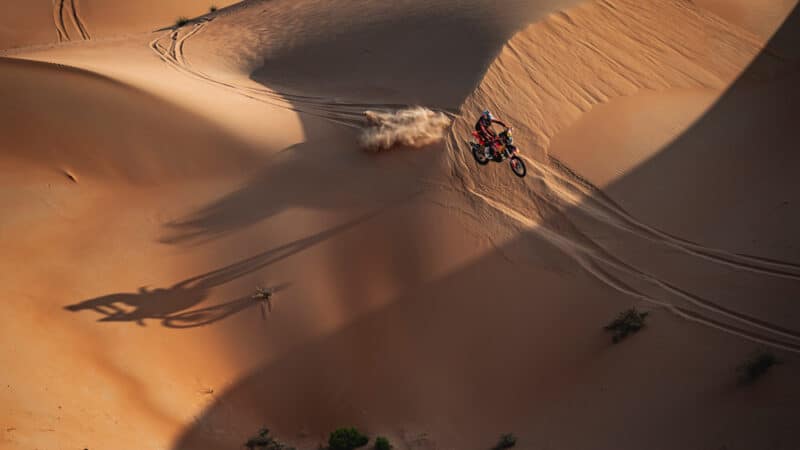
The stunning stages of the new-look Dakar Rally in Saudi must be seen to be believed
Marcelo Maragni / Red Bull Content Pool
“The Dakar Rally has adopted the Kingdom’s stunning yet brutal desertscapes… it has fallen in love with its exotic new home”
Embracing motorsport is just one aspect of Saudi Arabia’s evolving outlook into a fully engaged member of the international community – even if concerns over potential ‘greenwashing’ and ‘sportswashing’ of the oil-rich state’s reputation remain a live issue.
Formula E’s statement alliance with Saudi Arabia, which will host its sixth ePrix in January, was followed in 2020 by the Dakar Rally adopting the Kingdom’s stunning yet brutal desertscapes as its new home, after the rally raid’s 10-year residency in South America. The illustrious two-week epic has long transcended the African nation after which it is named (and to which it will never likely return).
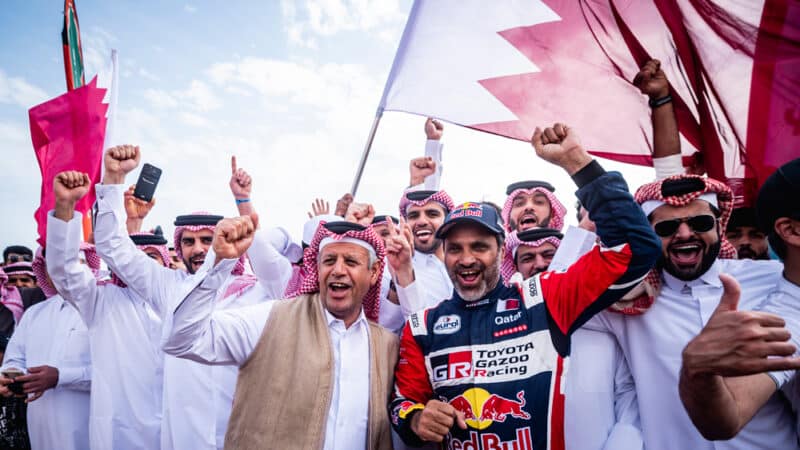
Qatar’s Nasser Al-Attiyah has won the last two editions
Marcelo Maragni / Red Bull Content Pool
The fifth Dakar to be run in Saudi takes place from January 5-19, starts in Al’Ula and includes in its second week a daunting Chrono stage that lasts a monstrous 48 hours through the immense Empty Quarter (the name is self-explanatory). Competitors in the variety of classes covering elite off-road cars, buggies, motorcycles and trucks must find by 4pm one of a number of bivouacs situated in the vast expanse, where they will be left to their own devices without service support before resuming the stage at 7am the following morning. In all, by the time the 434 vehicles and 778 competitors have traversed the Prologue and 12 stages over 14 days to reach the finish in Yanbu, they will have clocked around 5000km. There is nothing else like the Dakar, which has fallen in love with its exotic new home.
Following the Diriyah ePrix on January 27, attention will then turn to Extreme E’s fourth Saudi XPrix for the 2024 season opener on February 17-18. The electric-powered series for off-road SUVs made its world debut in Al’Ula in 2021, attracting a star-studded cast of team owners and drivers from a variety of racing disciplines. F1 world champions Lewis Hamilton, Nico Rosberg and Jenson Button remain among the committed team owners, for one-car entries shared in novel fashion by male and female driving crews. The dual messages on ecological awareness and diversity are either outrageously hypocritical or a shining beacon of changing attitudes in Saudi – depending upon your perspective.
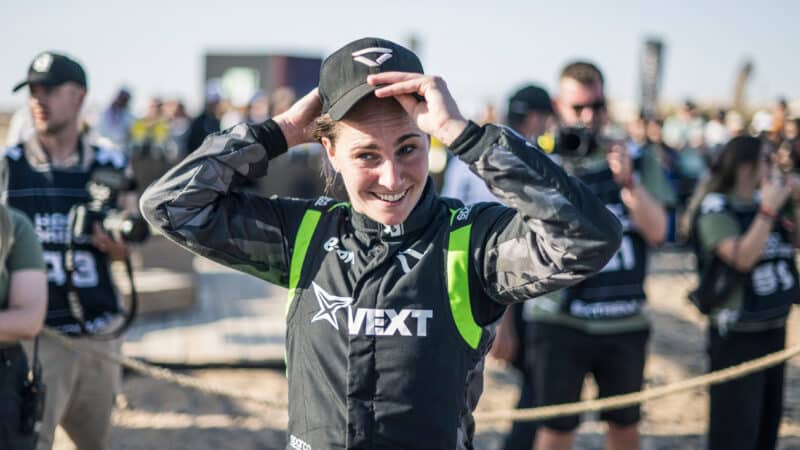
Mixed-gender teams are unique to Extreme E
Charly Lopez
“The dual messages on ecological awareness and diversity can be a shining beacon of changing attitudes in Saudi”
Just a few weeks later, the eyes of by far the biggest motorsport audience of them all will be trained on the Jeddah Corniche circuit for the fourth Saudi Arabian Formula 1 Grand Prix on March 7-9. This year the support bill includes the opening round of the all-female Formula Academy one-make series, which is entering its sophomore campaign with heightened support from the F1 teams in its quest to promote women racers.
When it was first held towards the end of 2021, the Jeddah Grand Prix offered a striking example of the ambition and resource-rich power held in Saudi’s grasp to develop its international sporting portfolio. When Motor Sport visited Jeddah just eight months prior to the race date, the Corniche beside the Red Sea was a desolate waste-ground. By the following November, the paint was still drying… but F1 took its bow under the cover of night on a glittering and super-fast hybrid street circuit – it carries the hallmarks of a wall-lined street track, but really it’s a permanent facility in disguise. And with an average speed of 156mph, the 3.83-mile course is a daunting one that quickly established itself as among the most spectacular venues on the ever-expanding global calendar of Formula 1.
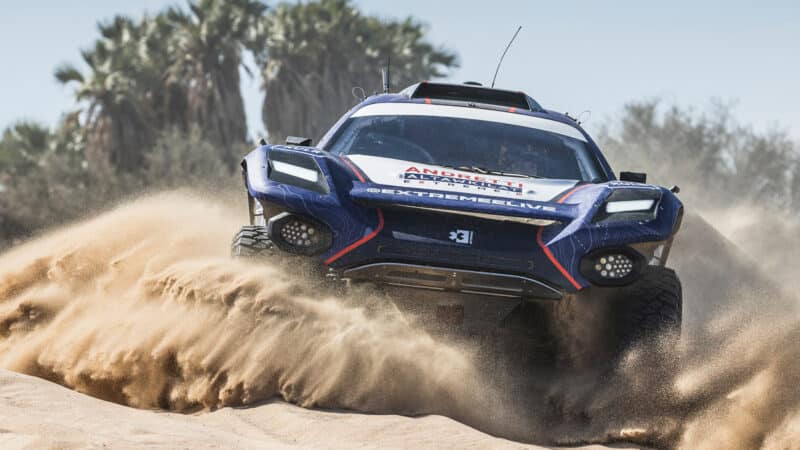
Extreme E is back for a fourth event in Saudi, with the drivers loving the mammoth dunes
Charly Lopez
“We have been presented with a blank canvas on which to develop motorsport in the Kingdom – how many people get that opportunity?” – Martin Whitaker
By March 2023 the Jeddah Corniche, which will remain home to the Saudi GP until a new circuit is completed in Qiddiya later this decade, had hosted three F1 races in the span of just 16 months. “It’s been an extraordinary period of time,” says Martin Whitaker, the British executive charged with running the Saudi Motorsport Company (SMC) that is ultimately responsible for all international motor racing activities in the Kingdom. “Officially SMC launched in November of 2021, but in practice we realistically only started business in May of 2022 once the second STC Formula 1 Saudi Arabian Grand Prix was completed. During that time, we’ve learned so many lessons from the events that we have staged, whether it is Formula 1, the Dakar Rally, Extreme E, and other on-track events like the FIA World Touring Car Cup race.”
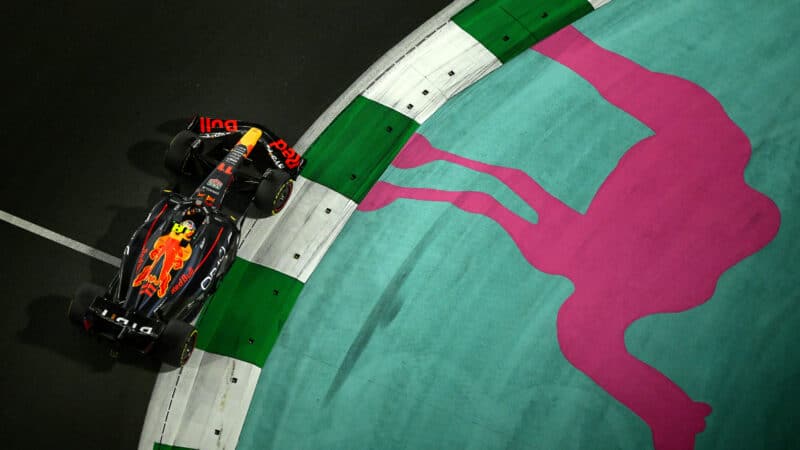
The Jeddah Corniche circuit may have been a rushed project, but it has more than proven the potential of motorsport in Saudi. It’s about to host its fourth GP
Getty Images / Red Bull Content Pool
The WTCR broke more new ground in 2022 on a shortened version of the Jeddah Corniche circuit by introducing international touring car racing to Saudi, albeit for what was the last-ever race for the now-defunct series.
“We have been presented with a blank canvas on which to develop motorsport in the Kingdom – how many people get that opportunity?” says Whitaker, whose past roles included responsibility for developing motorsport in Bahrain. “It is so encouraging to see the sport really starting to build some roots here and, most importantly, a real following. Beginning with a love for the automobile, people are now more informed about the sport and they are suddenly interested. There are exciting times ahead!”
The rapid expansion continues in 2024 as the Fanatec GT World Challenge Europe Powered by AWS travels to Saudi for the first time to complete its season in Jeddah on November 21-23. The GT4 European Series Powered by RAFA Racing Club will also join as the main support event as international sportscar racing takes its Saudi bow.
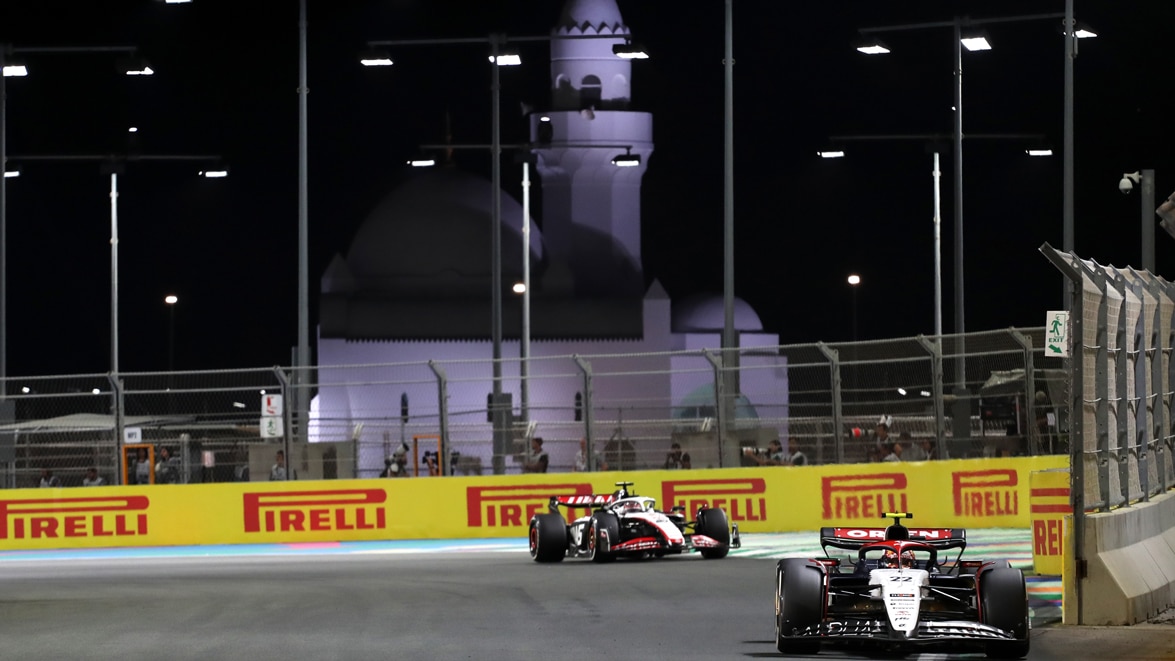
There’s much more to come. The two-wheeled MotoGP world will likely arrive in the Kingdom by 2027 and Whitaker isn’t shy about his ambition to welcome the World Rally Championship at some point too, given his personal affinity with the series – he also worked for Ford during its WRC heyday around the turn of the millennium.
You won’t be surprised to hear there is a greater purpose to this expanding portfolio. Motorsport is expected to play a major part in the much-vaunted Vision 2030, the Kingdom’s blueprint that apparently will prove its commitment to a more sustainable world.
“Our diversity of events is growing,” says Whitaker. “What we are now delivering is a genuine ladder of opportunity for young people to go racing or rallying or bike racing. The contracts that we are now developing – whether these be with Formula 1, MotoGP, Dakar Rally, GT, Extreme E or Formula E – are giving young people the opportunity to find out more about motorsport and the diverse range of opportunities it offers. And clearly, we can stage all of those sports here. The kingdom is a fantastic playroom, if you like, for motorsport.
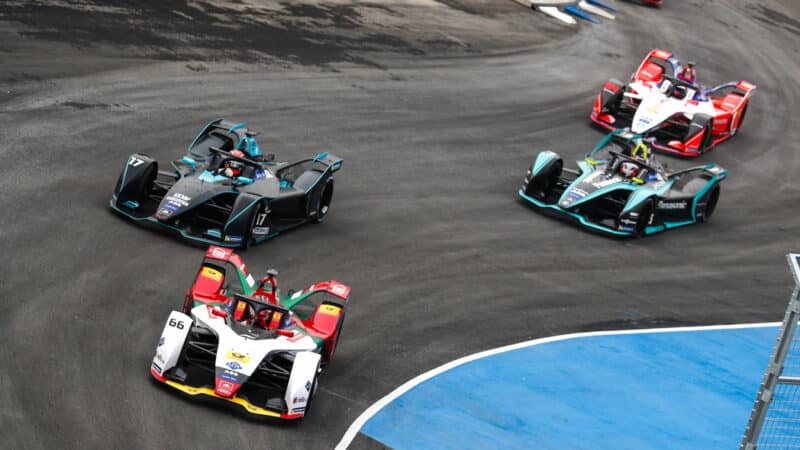
Formula E has been a hit at the Diriyah track
“We will start to see young Saudis who not only have a passion for the sport but have the talent, and they will start to make a name for themselves – and as a result for the Kingdom – on the world stage” – Martin Whitaker
“Our next steps are very much looking towards the creation of academies for young people to learn about how to race a kart, a bike, a rally car… As we develop these projects in the coming years, we will start to see that we have young Saudis who not only have a passion for the sport but have the talent to progress, and they will start to make a name for themselves – and as a result for the Kingdom – on the world stage.”
He knows it will take time, although given the rate of expansion since that landmark Diriyah ePrix in 2018, perhaps it won’t take as long as we might think for Saudi motorsport to take root and flourish. “We have got a long way to go,” warns Whitaker. “It is up to us to shape and form motorsport in the Kingdom and become global leaders in this field.”